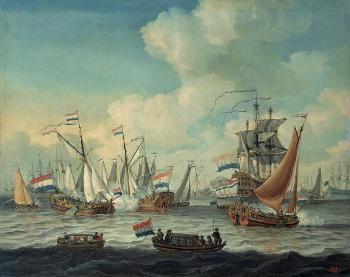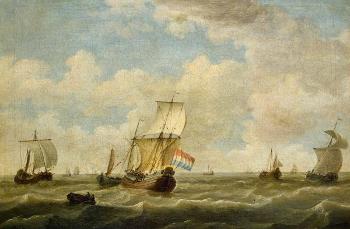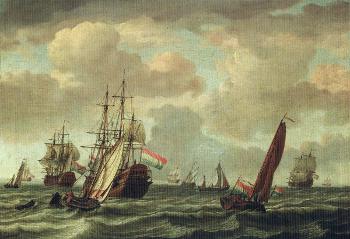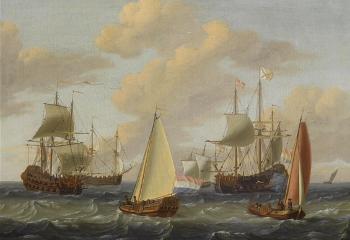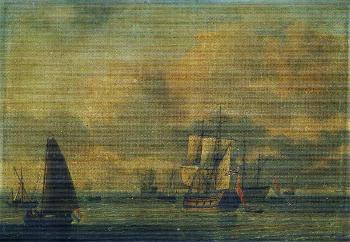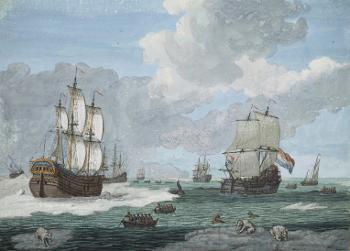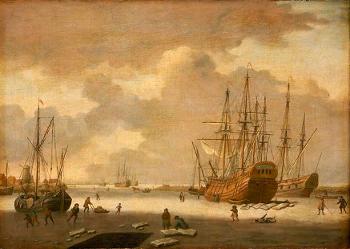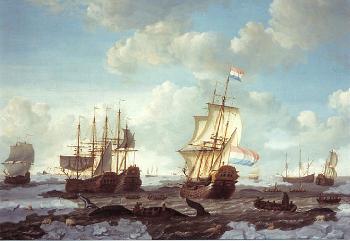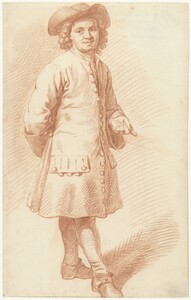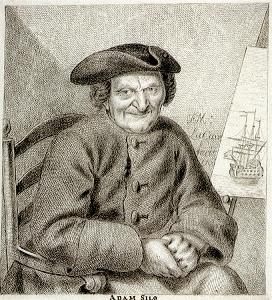Adam Silo
A Dutch Man-O-War and a two-decker in a stiff breeze
Oil on canvas : 43,6 X 62,5 cm
Signed lower left on a piece of driftwood “adam. Silo”
Sold at Sotheby’s London, 27/04/06
For 57.600 £ = 82.610 €
This is a comparative item
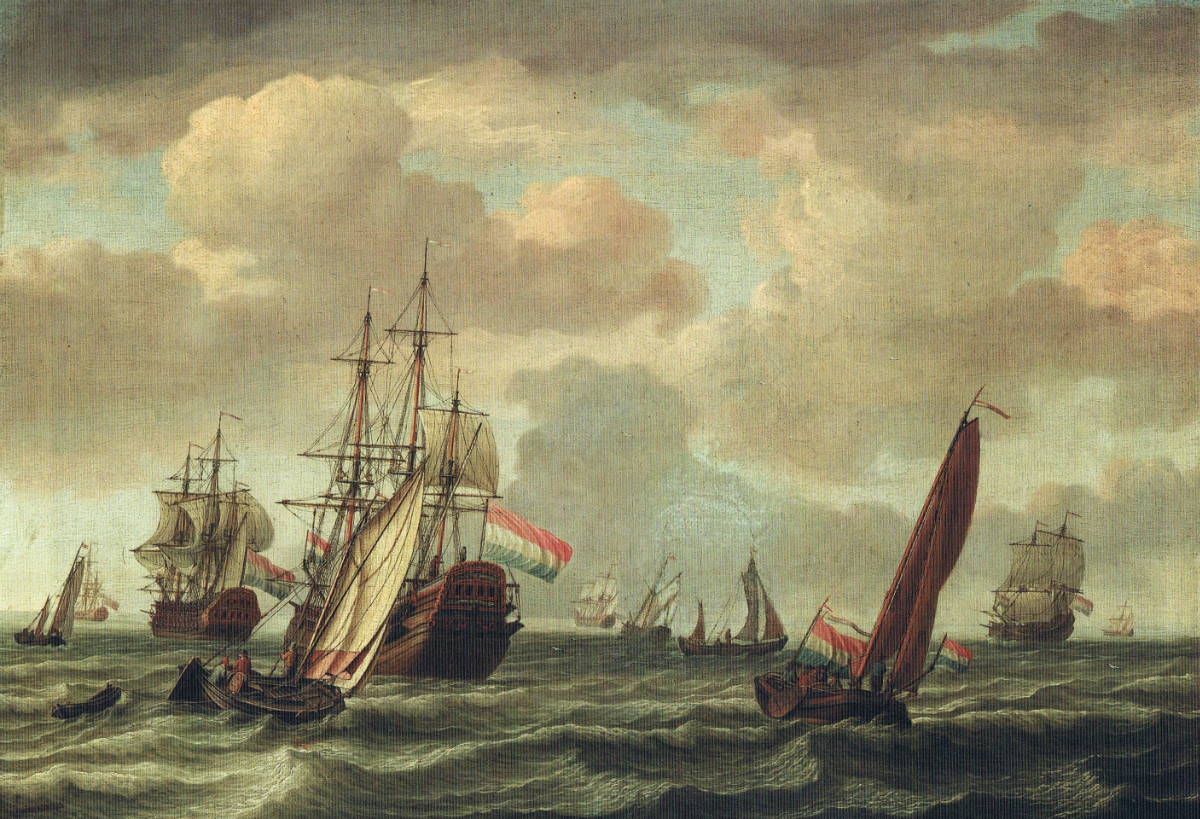
Painting for Sale
Silo, Attributed to Adam
"Dutch ships near a coastal town"
In short
In 1697 the Russian Tsar, Peter the Great, visited Amsterdam and its shipyards, as he wanted to modernize his country. During his stay he was taught the art of drawing ships by our young local painter. The Hermitage Museum in Saint Petersburg still holds paintings by Adam Silo that the Tsar brought back to Russia.
About Adam Silo
Dutch painter
Amsterdam 1674 (he was born on Christmas day) – 1760 Amsterdam
Painter of maritime subjects.
Silo was also active as draughtsman, etcher, mezzotint engraver and painter of interior decorations.
He also wrote a number of books, including “Afteekeningen van verscheidene soorten en charters van schepen en andere vaartuigen” ("Drawings of various types of ships and other vessels") published in 1757, when he was already 83 years old.
Silo’s marriage contract (1695, he was then 21 years old) mentions he was active as a “Gouddraadtrekker”, that is a goldsmith who makes gold-thread, which in those days was used for gold embroidery.
Until the age of 30 he worked as a master’s ship builder and as a sea captain.
In his early twenties, around 1695, he studied painting with Theodor van Pee (Amsterdam circa 1668/69 – 1746 The Hague).
Later Silo was also active as an instrument maker: he made musical instruments, binoculars, magnifying glasses, telescopes and wax models.
In 1697 our painter taught the Russian Tsar Peter the Great how to draw ships during his visit to Amsterdam. Peter the Great bought some of Silo’s paintings. The Hermitage Museum in Saint Petersburg has the largest collection of his paintings.
The Amsterdams Historisch Museum has the only dated painting by Silo, from 1729, showing a fleet of whalers off Amsterdam 1729.
About Tsar Peter the Great
Tsar Peter the Great (1672 – 1725) is best known for having expanded the Russian empire and for having modernized the traditional Russian society, giving it a pro-European, modern look.
His father died when he was only four years old and several half-brothers, a half-sister and his own mother first ruled Russia. It was only after her death in 1694 that Peter became an independent sovereign, the first two years with his infirm half-brother Ivan V.
In 1697/98 the young Tsar travelled for eighteen months through Europe (Holland, England, Germany and Austria) to create an anti-Ottoman alliance for he wanted to acquire control of the Black Sea. While this did not succeed, he was able to study ship-building in Holland and city-building in England, and he hired a lot of skilled workers.
In Holland Peter had first sought work under a pseudonym at the shipyard of Zaandam, where his real identity was rapidly discovered: he was over 2 m tall.
He left Zaandam already after eight days and went to Amsterdam where he worked for four months at the Dutch East India Company shipyard, in those days the largest in the world.
In 1697 our painter taught the Russian Tsar how to draw ships. Notes made by the Tsar at the time have survived, and Peter the Great owned several of his tutor's paintings and he reputedly used them to examine cadets at the Naval Academy in Russia.
During the Tsar’s visit to Amsterdam several fleet manoeuvres were held in the Zuiderzee.
Why should you buy this painting?
Because it is a nice 18th century Dutch marine painting; it must date from the 1730s or 40s.
Comparative paintings
Click photos for more details

